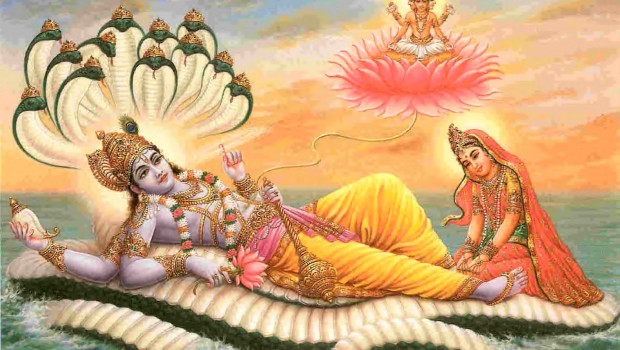
03 Sep Why do we fast on Ekadashi?
Ekadashi fasting is all about purifying your soul and preparing yourself towards attaining Moksha (salvation). This ritualistic practice helps human beings to get rid of malefic planetary influences and attain happiness.
While all Hindus can observe this fast, it is particularly popular among the devotees of Vishnu and is kept on the 11th lunar day of the lunar cycle of a Hindu calendar month.
Ekadashi fasting is about spiritual cleansing. It is dedicated to Lord Vishnu – the protector lord of the realm. The lunar phase, according to Hindu belief, has two distinct phases – the Krishna Paksha (new moon) and the Shukla Paksha (waxing moon). Each phase is of 14 days.
The eleventh day is called Ekadashi (literally meaning eleventh). The Vratham or the ritualistic fast that is kept on this day is called Ekadashi Vratham and is observed by millions of Hindus all over the world. There are strict Ekadashi fasting rules.
In this article, we shall discuss how to do Ekadashi fast and what are things you should be careful about while observing the Ekadashi Vrat.
The Ekadashi fast benefits are meant for those who have faith and worship Lord Vishnu. It is considered to be amongst the most fruitful fasts in Hindu. Ekadashi fast’s benefits can bring you peace, harmony, and prosperity.
The significance of Ekadashi fast was narrated by Vishnu to Yudhishthira. He said those who are truly faithful must observe this day to purify the soul and attain Moksha (salvation).
Since the main purpose of human life is to attain salvation, this fast is said to be particularly helpful for all. Devout observers of this pious Hindu ritual attain peace of mind and prosperity.
How to observe Ekadashi Vrata?
Ekadashi fast has many rules that must be observed properly to attain the desired results:
- Pregnant women and infirm and old people must not keep this fast.
- Only those who are determined and are deeply spiritual can observe this fast as per the rules.
- Food and water must not be touched during the fasting hours. However, those who cannot observe Nirjala Ekadashi (Ekadashi without water) can intake fruit and milk.
- Intake of food grains, meat, and fish is strictly prohibited.
- The fast must start at sunrise and must end at sunset. Observers of this fast are advised to wake up in the morning, take a purifying bath and recite the Vishnu mantra, “Om Namo Bhagvate Vasudevaya.”
- Observers of this fast should refrain from violence, deceit, and lying and indulge in charitable activities.
- Ekadashi fasting food excludes meat, grains, and fish. Instead, fruits, milk and milk-based products and non-grain products are to be eaten. If you are observing Ekadashi fast for the first time and don’t know what to eat, try to avoid flour, rice, wheat, pulses, onion, and garlic.



No Comments